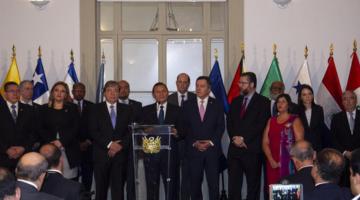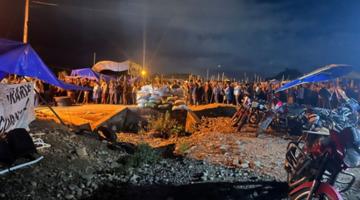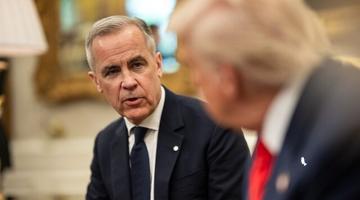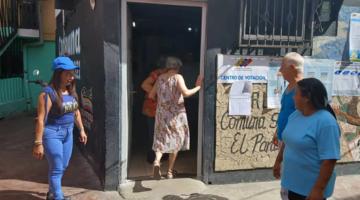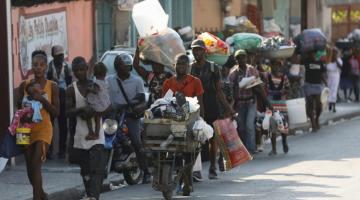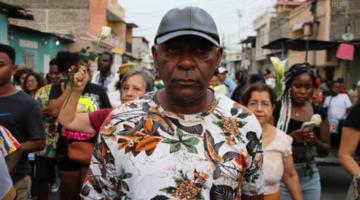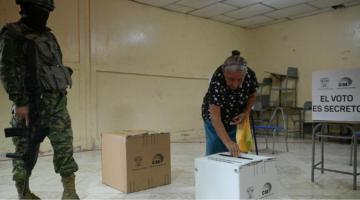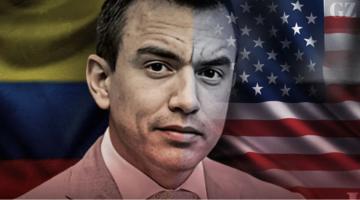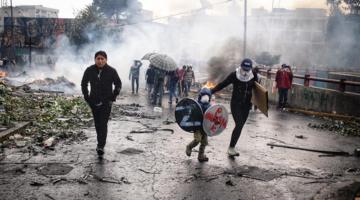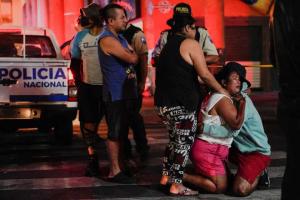Poster for the Orinoco Tribune's interview with Ecuadorian former diplomat Fidel Narváez. Photo: Orinoco Tribune. with Ecuadorian former diplomat Fidel Narváez. Photo: Orinoco Tribune.
As Ecuador heads into a pivotal runoff election, left-wing candidate Luisa González emerges as the favorite—but the shadow of foreign interference and political violence looms large. In this interview, diplomat and human rights advocate Fidel Narváez warns that while the Citizen Revolution coalition is poised to reclaim power, the far right and external forces may yet attempt to derail democracy as they have before.
Originally published in Orinoco Tribune.
Caracas (OrinocoTribune.com)—In a special interview with Orinoco Tribune, Ecuadorian human rights expert Fidel Narváez expressed his confidence in the victory of the Citizen Revolution (RC) candidate, Luisa González, in the second round of Ecuador’s presidential election to be held on April 13. However, he stressed that the public should remain alert for potential last-minute interference by Ecuador’s far right and US imperialism.
“They killed a presidential candidate to sway the 2023 vote. They are capable of anything—but Ecuador now sees through these tricks,” Narváez said in this regard.
Fidel Narváez studied International Relations at the University of Economics in Prague, Czech Republic, a prestigious institution known for its focus on diplomacy and economics. During his career, he became a prominent human rights advocate, serving as both a leader of Ecuador’s Permanent Assembly for Human Rights (APDH) and as the technical secretary of the Inter-American Platform for Human Rights, Democracy, and Development.
Since 2007, he has resided in the United Kingdom. Between 2010 and 2018, during President Rafael Correa’s administration, Narváez held diplomatic roles as Ecuador’s consul in London. Notably, he played a critical role in securing political asylum for Julian Assange in 2012, after the WikiLeaks founder faced potential extradition to the United States. During Assange’s seven-year confinement in the Ecuadorian Embassy in London, Narváez lived alongside him for six years, managing diplomatic tensions and logistical challenges arising from the high-profile case. Thereafter, while Assange was imprisoned in the maximum-security Belmarsh Prison in London while the US-led lawfare against him continued, Narváez advocated tirelessly for the journalist’s release.
The April 13 Ecuadorian runoff election between the left-wing Citizen Revolution candidate Luisa González and the incumbent right-wing President Daniel Noboa takes place in a backdrop of soaring crime, economic collapse, and energy crisis and blackouts. Analysts trace the crisis to neoliberal policies post-2017, contrasting Western media’s reluctance to blame capitalism for Ecuador’s turmoil with its frequent attribution of similar crises to socialism in Venezuela.
Polls show González leading, with Narváez calling this the left’s “closest shot at power since 2017.” Nevertheless, he warned of potential “dirty tricks” by opponents, citing the 2021 election sabotage via false Colombian guerrilla funding claims for the then RC candidate and the 2023 assassination of a presidential candidate, Fernando Villavicencio, days before the vote. Still, the ex-diplomat stressed that “optimism is necessary to win, and our hopes are well-founded.”
According to Narváez, if González wins, her ability to govern would hinge on alliances in a fractured National Assembly. “While no party holds a majority, Citizen Revolution remains Ecuador’s strongest bloc with 67 seats,” he explained. “Our recent alliance with the Indigenous Movement, Pachakutik [9 seats] secures a simple majority,” essential for approving most legislations. While smaller right-wing parties such as the Social Christian Party (4 seats) may resist progressive agendas, González’s “inclusive approach could sway pragmatists.”
Although there are some calls for convening a constituent assembly to overturn constitutional violations committed by Noboa and by former presidents Guillermo Lasso and Lenín Moreno, such as allowing US military presence on Ecuadorian soil, González’s coalition rules out a constituent assembly, given that the movement lacks the “political muscle” to execute such a project at the moment. Instead, Narváez emphasizes leveraging Ecuador’s existing 2008 Constitution—hailed as one of Latin America’s as well as the world’s most progressive—to rebuild institutions and reverse neoliberal reforms.
Narváez also drew attention to Noboa’s alignment with US interests, including a controversial Mar-a-Lago meeting with Trump and a security deal with the mercenary organization Blackwater headed by Erik Prince, actions that have drawn domestic backlash even from sectors of the right. Given this situation, the diplomat warned of potential US-backed “October surprises.” However, he noted that former President Correa’s nationalist and sovereign policies, like “expelling foreign bases, protecting Assange, rejecting free-trade dogma, prove that even the US respects coherent leaders, and sovereign policies earn respect, even from adversaries.”
Regarding the security crisis in Ecuador, with homicides skyrocketing from 6 per 100,000 in 2017 to 46 in 2023, Narváez explained that Luisa González, who comes from the same bases as Correa, pledges to restore Correa’s model of social inclusion over Noboa’s “iron fist” approach. He criticized Noboa’s Blackwater deal as a “desperate distraction” from his failed policies, arguing that rebuilding institutions—not militarization—will resolve the crisis.

